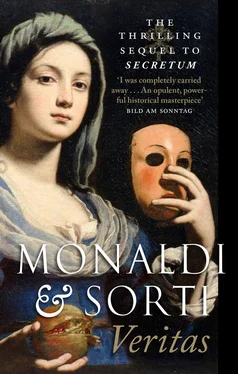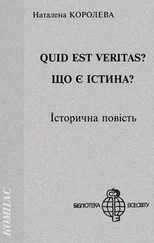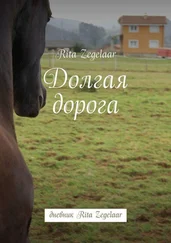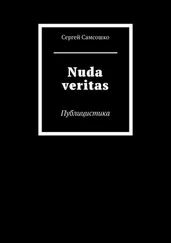Rita Monaldi - Veritas
Здесь есть возможность читать онлайн «Rita Monaldi - Veritas» весь текст электронной книги совершенно бесплатно (целиком полную версию без сокращений). В некоторых случаях можно слушать аудио, скачать через торрент в формате fb2 и присутствует краткое содержание. Жанр: Исторический детектив, на английском языке. Описание произведения, (предисловие) а так же отзывы посетителей доступны на портале библиотеки ЛибКат.
- Название:Veritas
- Автор:
- Жанр:
- Год:неизвестен
- ISBN:нет данных
- Рейтинг книги:3 / 5. Голосов: 1
-
Избранное:Добавить в избранное
- Отзывы:
-
Ваша оценка:
- 60
- 1
- 2
- 3
- 4
- 5
Veritas: краткое содержание, описание и аннотация
Предлагаем к чтению аннотацию, описание, краткое содержание или предисловие (зависит от того, что написал сам автор книги «Veritas»). Если вы не нашли необходимую информацию о книге — напишите в комментариях, мы постараемся отыскать её.
Veritas — читать онлайн бесплатно полную книгу (весь текст) целиком
Ниже представлен текст книги, разбитый по страницам. Система сохранения места последней прочитанной страницы, позволяет с удобством читать онлайн бесплатно книгу «Veritas», без необходимости каждый раз заново искать на чём Вы остановились. Поставьте закладку, и сможете в любой момент перейти на страницу, на которой закончили чтение.
Интервал:
Закладка:
Finally, as a local chimney sweep, I was available all year round, while my Alpine colleagues only came down at the beginning of November.
I myself, to tell the truth, was often obliged to take my lively little son along with me, but I would never have made him clamber up a flue; I merely used him as a small apprentice and assistant, this being a job that requires at least two people.
To reassure the customers of my skills, I would boast a long apprenticeship in the Aprutine Mountains (where, as in the Alps, there is a long tradition of chimney sweeping). Actually I had no real experience. I had learned the rudiments of the art only at Villa Spada, on those occasions when I had been asked to climb up the flues to solve some unexpected problem, or to repair the roof.
And so, every night, I would load my barrow with tools — rasp, palette knife, wire brush, butcher’s broom, a rope, a ladder and counterweights — and set off, never without first seeing my consort give her sleep-befuddled child a loving hug. Cloridia detested this risky trade, which kept her awake at nights, praying that nothing would happen.
Wrapped in my short black cloak, by the first light of dawn I would have reached the outlying areas of the city or the nearby villages. And here, uttering the cry “Chimney-sweeeep, chimney-sweeeeeeeeep!”, I would offer my services.
All too often I would be greeted with hostile words and gestures; the chimney-sweep arrives in the winter, bringing bad weather with him, and so is considered a figure of ill-omen. When people did open their doors to us, if we were lucky my son would receive a bowl of warm broth and a scrap of bread from some kindly housewife.
A black jacket buttoned on the left, below my arm, to prevent the buttons from snagging on the walls of the chimney, and closed all the way to the top, the sleeves tied tightly at the wrists with string, to stop the soot entering; knee-length trousers of rough moleskin, which did not hold the dirt, with protective patches on the knees, elbows and bottom, the points of greatest wear when clambering up the narrow flues: this was my uniform. Narrow and black, it made me look only a little less tiny and scrawny than my son, so that I was often taken for his slightly elder brother.
As I wormed my way up the flue, my head would be swathed in a canvas sack, hermetically sealed at the neck, to save me, at least in part, from inhaling the soot. Hooded like this, I looked like a prisoner condemned to the gallows. I was completely blind, but in the flue there was no need to see: you worked by touch, scraping with the rasp.
My son would wait down below, trembling with fear lest something should happen and he should be left all alone, far from his dear mother and sisters.
In the fireplace and on the roof, however, I would climb up barefooted, so as to be unimpeded and thus able to brace myself and push more efficiently. The problem was that it reduced my feet to a mass of bruises and sores, and so throughout the winter, the period when I had most work, I would walk with a limping, unsteady gait.
Working on the roofs was often extremely dangerous: however, it was a mere nothing to someone like me, who had once climbed the dome of St Peter’s.
The most painful aspect of our poverty, however, was not my wretched job, but our two girls. My daughters, unfortunately, were still unmarried, and everything indicated that they would remain so for a long time. The Lord God, praise be given, had endowed them with an iron constitution: despite their privations, they were still beautiful, rosy and florid (“Thanks to their three years of breast-feeding!” their mother would say proudly). Their hair was so gorgeous and glossy that every Saturday morning they would go to the market to sell the hair that got caught in their combs during their morning toilet for two baiocchi . Their health was a real miracle, as all around us the cold and famine had taken a heavy toll.
My two girls — sweet, healthy, beautiful and virtuous — had just one flaw: they had not a penny of dowry. More than once the nuns had come from the convent of Santa Caterina Sopra Minerva, which annually distributed large sums to the families of poor girls who would agree to take the vows, to try to persuade me to send them to the cloisters in exchange for a neat little nest egg. The girls’ robust constitution and perfect health attracted the nuns, who needed strong, humble sisters to do all those chores in the convent that the nuns from noble families could not be expected to do. But even at our worst moments I had politely declined these offers (Cloridia was rather less polite; shaking her breasts angrily, she would berate the nuns to their faces: “You think I breastfed each of them for three years to see them end up like that?”), and in any case my girls themselves showed no inclination for the veil.
Already fully acquainted with the joys of maternity thanks to their experience as assistant midwives, they yearned to find husbands as soon as possible.
Then the cold ceased and the famine too. But the poverty did not vanish so quickly. After two years, my daughters were still waiting.
A futile anger would gnaw at me whenever I saw my elder daughter’s face grow asbstracted and sad without a word being said (she was already twenty-five years old!). My rage was not directed against a blind and cruel fate, far from it. I knew perfectly well whom to blame: not the cold, nor the famine that had laid all Europe low. No. I had a name in mind: Abbot Melani.
A ruthless schemer, an interloper, a man of a hundred deceits and a thousand tricks; master of the lie, prophet of intrigue, oracle of dissimulation and falsehood; all this, and more, was Abbot Atto Melani, a famous castrato singer of former days, but most especially a spy.
Eleven years earlier he had grimly exploited me, even putting my life at risk, with the promise of a dowry for my daughters.
“Not just money, houses. Property. Lands. Farms. I shall make over your daughters’ dowry. A rich dowry. And, when I say rich, I am not exaggerating.” Thus he had duped me. Those words were still engraved in my memory as in my bare flesh.
He had explained that he had various properties in the Grand Duchy of Tuscany: all valuable, with excellent incomes, he had specified, and he had even set down a promise in writing, in which he engaged to establish in my daughters’ names a marital dowry, each with incomes or properties that were “substantial”, all to be defined before a notary of the Capitol. But he was never to take me to that notary.
Having made use of my services, he had gone off to Paris on the sly, and all my wandering from lawyer to lawyer, from notary to notary, in search of someone who might give me some hope, had proved useless. I would have had to file a very expensive lawsuit against him in Paris. In short, that document containing his promise was mere waste paper.
And so he enjoyed his riches, while I endeavoured to drag myself and my family from the desperate swamp of indigence.
But now I was summoned to appear before a Roman notary. He had been charged, by a colleague in Vienna, with the task of tracking me down and delivering to me a deed of donation signed by Abbot Melani.
What exactly it consisted of was a mystery. The asset, which the notary considered must be something of great value (“a piece of land, or a house”), was described by abbreviations and numbers, probably referring to Viennese registries, all of which were totally abstruse. Abbot Melani had moreover opened an unlimited credit in my favour at an exchange bank, so that I could provide for the journey without any financial hindrances.
As for me, I just had to present myself at a certain address at the imperial capital, and there all would be revealed and I would receive what was due to me.
Читать дальшеИнтервал:
Закладка:
Похожие книги на «Veritas»
Представляем Вашему вниманию похожие книги на «Veritas» списком для выбора. Мы отобрали схожую по названию и смыслу литературу в надежде предоставить читателям больше вариантов отыскать новые, интересные, ещё непрочитанные произведения.
Обсуждение, отзывы о книге «Veritas» и просто собственные мнения читателей. Оставьте ваши комментарии, напишите, что Вы думаете о произведении, его смысле или главных героях. Укажите что конкретно понравилось, а что нет, и почему Вы так считаете.











